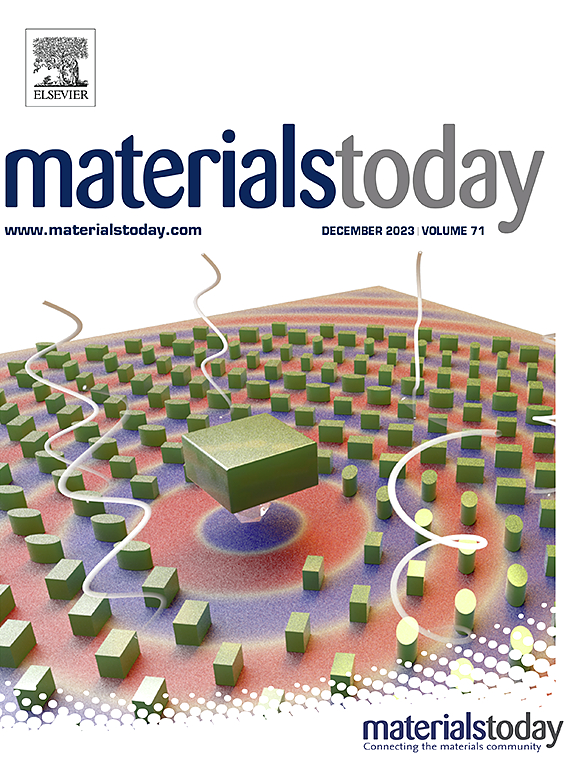Fermi engineering realizes advanced materials for next-generation energy devices
IF 22
1区 材料科学
Q1 MATERIALS SCIENCE, MULTIDISCIPLINARY
引用次数: 0
Abstract
Fermi engineering or Fermi level (EF) engineering (EF-engineering), represents an innovative approach for designing efficacious nanomaterials (NMs), involves the manipulation of the EF via modulating the surrounding electronic band structure, and provides precise control over the electronic features of resultant NMs. Thus, EF-engineering emerges as a promising approach to design advanced electrode materials for next-generation energy devices. This review summarizes research progress to unveil the concept of EF-engineering towards designing efficient electrode NMs for energy conversion and storage devices such as (photo/electro)catalysts, solar cells, supercapacitors, and rechargeable batteries, to converge attention on a point that the efficiency of electrode NMs emerges from their ability to coordinate selective intermediates with the desired strength, which in turn mainly depends on the positioning of EF concerning the surrounding electron densities. So, EF-engineering determines the ability of NMs to suppress the undesired competing reactions and, thus, the reaction kinetics of a specific reaction. This is the first effort of its kind to encourage the design of efficacious NMs with precise EF-engineering, supported with viable strategies for applying and characterizing the EF-engineering. Furthermore, the challenges and prospects are addressed, inspiring the development of advanced NMs.

费米工程实现下一代能源设备的先进材料
费米工程或费米能级工程(EF-engineering)代表了一种设计高效纳米材料(NMs)的创新方法,涉及通过调制周围电子能带结构来操纵EF,并提供对所得到的NMs的电子特征的精确控制。因此,ef工程作为设计下一代能源设备的先进电极材料的一种有前途的方法而出现。本文综述了研究进展,揭示了为能量转换和存储设备(如光/电)催化剂、太阳能电池、超级电容器和可充电电池)设计高效电极纳米材料的efe工程概念,将注意力集中在电极纳米材料的效率取决于它们协调选择性中间体和所需强度的能力上。而这又主要取决于EF的位置与周围电子密度的关系。因此,ef工程决定了NMs抑制不希望的竞争反应的能力,从而决定了特定反应的反应动力学。这是同类研究中第一次通过精确的ef工程来鼓励设计有效的NMs,并支持应用和表征ef工程的可行策略。展望了未来的发展前景和面临的挑战,并对先进纳米材料的发展提出了启示。
本文章由计算机程序翻译,如有差异,请以英文原文为准。
求助全文
约1分钟内获得全文
求助全文
来源期刊

Materials Today
工程技术-材料科学:综合
CiteScore
36.30
自引率
1.20%
发文量
237
审稿时长
23 days
期刊介绍:
Materials Today is the leading journal in the Materials Today family, focusing on the latest and most impactful work in the materials science community. With a reputation for excellence in news and reviews, the journal has now expanded its coverage to include original research and aims to be at the forefront of the field.
We welcome comprehensive articles, short communications, and review articles from established leaders in the rapidly evolving fields of materials science and related disciplines. We strive to provide authors with rigorous peer review, fast publication, and maximum exposure for their work. While we only accept the most significant manuscripts, our speedy evaluation process ensures that there are no unnecessary publication delays.
 求助内容:
求助内容: 应助结果提醒方式:
应助结果提醒方式:


